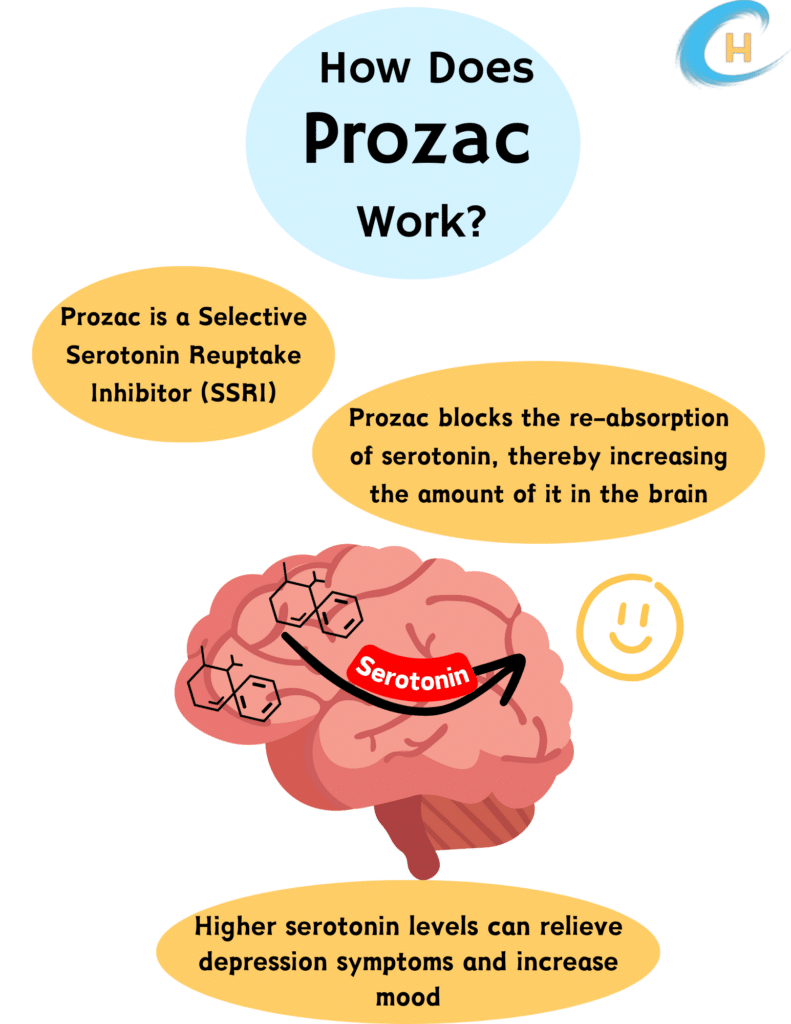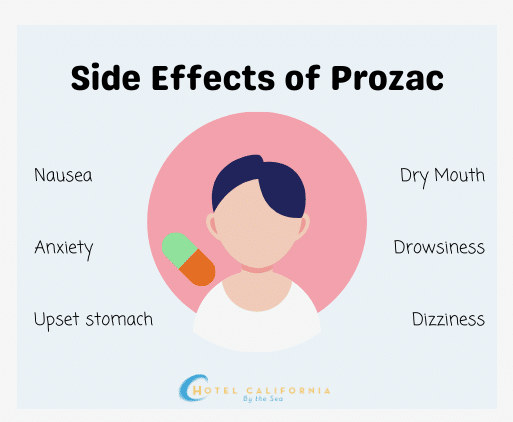Is Prozac an addictive drug?
Antidepressant medications are one of the most prescribed and used drugs in the U.S. Physicians and clinicians prefer these medications as an alternative to benzodiazepines because there is much less potential for abuse of the drug. An estimated 10% of Americans are on antidepressant medications and an estimated 60% of those have been taking them for two years or more. Prozac or fluoxetine, is one of the more popular ones, with more than 28 million Americans reportedly using the drug. With its growing popularity, is Prozac an addictive drug?

Prozac is taken to treat symptoms of major depressive disorder, bipolar disorder, obsessive-compulsive disorder (OCD), treatment-resistant depression, bulimia nervosa, and panic disorder. It is also prescribed to treat acute depressive episodes, fibromyalgia, anxiety disorders and diabetic neuropathy. Prozac is one of the only medications drug labeled to treat bipolar disorder. Other types of antidepressant medications include Lexapro, Zoloft and Paxil.
What is Prozac?
Prozac is a selective serotonin reuptake inhibitor (SSRI). It affects the central nervous system. This means the medication works by blocking the reuptake of the neurochemical serotonin, leaving more of the chemicals available in the brain to be used. SSRIs affect a person’s mood. It works by improving energy, mood levels, sleep and focus. Prozac also goes by the nickname “happy pills” for its ability to elevate body functions acting similar to a stimulant drug. This happy state of mind makes users feel “normal” especially after being on the medication for a long period of time.
Antidepressants like Prozac are not considered addictive drugs due to the fact that they do not produce any euphoric rush of feelings. They do not induce drug cravings. They are not associated with hazardous behaviors. And they do not prolong any sort of addictive behaviors.

Side Effects of Prozac
- Nausea
- Headache and confusion
- Insomnia
- Anxiety
- Weight loss and reduced appetite
- Tremors
- Hair loss
- Diarrhea
- Difficulty concentrating and memory issues
- Mania and high energy affect mood and behavior
- Racing thoughts and impulsive behaviors
- Seizures
- Suicidal thoughts
- Bleeding more easily
- Hyponatremia
Can antidepressants become addictive? Is Prozac an addictive drug?
Despite not being chemically addictive, some people who use Prozac and other antidepressants can develop an antidepressant dependence. If severe enough, it can also lead to antidepressant addiction. A Prozac dependence is a state of adaptation caused by regular use of medication. It is a physical dependence. Users do not experience cravings or euphoria, but once medication has stopped, they will experience withdrawal symptoms. Withdrawal symptoms don’t usually appear for several weeks after the first dose. These symptoms can last as long as two months. Though dependence is a temporary experience, if not treated, it can turn into an addiction.
Prozac Withdrawal Symptoms
- Nausea and vomiting
- Cramps and diarrhea
- Appetite loss
- Dizziness, lightheadedness
- Difficulty walking
- Nightmares, unusual dreams and insomnia
- Flu-like symptoms
- Headache, muscle pain and weakness
- Extreme anxiety and agitation
- Panic and mania
- Suicidal thoughts and depression
- Tremors and muscle tension
- Restless leg and difficulty controlling speech
- Brain zaps and hypersensitivity

A Prozac addiction is a chronic and neurological disease. Addiction is affected by genetic, psychosocial, and environmental factors that produce characteristics of uncontrollable drug use, compulsive drug use and continued drug use despite repeated negative outcomes. A psychological addiction happens when users rely on the effects of the drug over time and are unable to function without a constant dose of the drug.
When antidepressants like Prozac are abused, it can result in adverse side effects including agitation, abnormal heartbeat, confusion, insomnia, suicidal thoughts and behaviors.
People who abuse antidepressants become addicted to the drug by increasing their dosage. They often feel the drug doesn’t work fast enough to treat uncomfortable symptoms of depression or other mood disorders. When dosage increases, the body becomes physically dependent and can develop withdrawal if the dosage isn’t met or decreased. Consistent dosage increases can eventually lead to an addiction in which users continue to use in an attempt to treat their symptoms even after they have begun developing adverse side effects.
Signs of Prozac Abuse
- Talkativeness
- High energy or drowsiness
- Dry mouth
- Loss of appetite
- Nausea and excessive sweating
- Jitters
- Numbness
- Irritability and aggression
- Insomnia
- Violent thoughts and behaviors
- Depression
- Psychosis and paranoia
- Hallucinations and confusion
- Nervousness and anxiety
- Suicidal thoughts
Prozac abuse and addiction have been most closely associated with the development of violent thoughts, behaviors and suicidal tendencies. These dangerous side effects can be exacerbated with the added abuse of alcohol. Alcohol is a common substance used in combination with antidepressants. Users use alcohol as a form of self-medication to cope with and manage the uncomfortable symptoms of their depression and other mental illnesses. Alcohol and antidepressant abuse can cause worsening depression and anxiety, intense sedation, dangerously high blood pressure, impaired coordination and overdose.
Check Your Insurance Coverage for FREE
Find out if your insurance covers addiction treatment in minutes. We accept most insurance!
Prozac vs Zoloft
Both Prozac and Zoloft are SSRI antidepressant medications prescribed to treat major depressive disorder, OCD and panic disorder. They both work by preventing the reuptake of serotonin in the nerve cells of the brain. Research and studies often associate low levels of serotonin with the development of depression and anxiety. Antidepressants like Prozac and Zoloft work to create more serotonin available in the brain to use which combats the symptoms of the two common mental health conditions. However, when abused, this could also lead to a higher risk of developing serotonin syndrome. Serotonin syndrome is a condition characterized by the overload of serotonin in the brain to the point where it becomes dangerous and toxic. Some of the symptoms of serotonin syndrome include fast heartbeat, sweating, tremors, muscle stiffness, agitation and seizures.
Common side effects of both drugs include nausea, diarrhea, dizziness, weakness, headache and difficulty sleeping. Both medications also increase the risk of abnormal heart rhythms and are also prescribed to treat symptoms of anxiety.
Prozac
- Once a week dose
- Also used to treat eating disorders like bulimia, treatment-resistant depression and bipolar related depression.
- Studies have shown Prozac may be more effective in treating symptoms of anxiety
- Additional side effects – strange dreams, nervousness, nose and throat irritation
Zoloft
- Once a day dose
- Also used to treat social anxiety and PTSD
- In a review of 97 studies of SSRI treatments for panic disorder, Zoloft was considered to be more effective
- Additional side effects – dry mouth and increased sweating
Reach out to Hotel California by the Sea
We specialize in treating addiction and other co-occurring disorders, such as PTSD. Our Admissions specialists are available to walk you through the best options for treating your addiction.
Treatment for Antidepressant Addiction
Prozac is one of the most common antidepressants prescribed. It has a half-life between 4-16 days and takes an estimated five half-lives to eliminate the drug from the body. This long-term SSRI can be very effective in treating depression and other mental health conditions. Despite its no habit-forming properties, users can still develop a physiological dependence on the drug, which can then lead to an addiction. Professional behavioral treatment programs provide the most efficient outcomes for those who are struggling with a substance use disorder.
Hotel California by the Sea has a unique treatment program targeting users who have an addiction to antidepressants like Prozac. We provide all levels of care including detox, residential, PHP and IOP. Through rigorous therapies such as CBT, DBT and group therapy, users are able to understand the root cause of their addiction. By understanding the catalyst for your disease, clients and clinicians will be better able to create a customized treatment plan to treat the condition. At Hotel California by the Sea, we work to help our clients overcome their addiction through emotional, physical and psychological aspects of treatment.
References:
https://www.medicalnewstoday.com/articles/drugs-prozac#side-effects
https://www.addictionhope.com/prozac/
https://www.addictioncenter.com/stimulants/antidepressants/
https://www.verywellmind.com/prozac-withdrawal-symptoms-timeline-and-treatment-4766892
https://www.ncbi.nlm.nih.gov/pmc/articles/PMC7613097/
https://www.verywellhealth.com/prozac-fluoxetine-vs-zoloft-sertraline-7495972#:~:text=Both%20medications%20provide%20the%20same,treating%20PTSD%20and%20social%20anxiety
https://www.goodrx.com/conditions/generalized-anxiety-disorder/zoloft-vs-prozac-anxiety
https://www.drugwatch.com/ssri/prozac/
https://addictionresource.com/drugs/prozac/
https://www.healthline.com/health/antidepressants-arent-addicting#1
